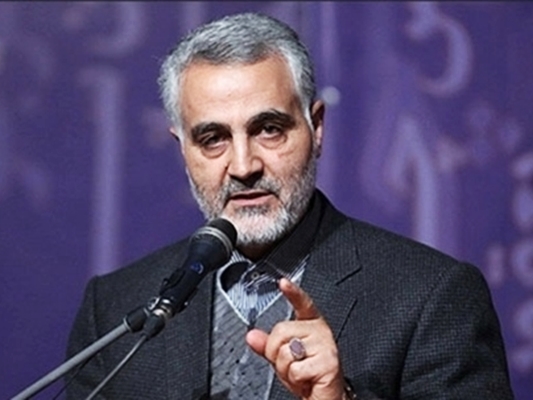Here is IFP’s translation of a report by Khabar Online about a controversial note inked by Heshmatollah Falahatpisheh, a member of Iranian Parliament’s National Security and Foreign Policy Commission, who has touched upon Major General Soleimani’s “no” to a group of conservatives who had asked him to step up as their candidate for upcoming presidential elections.
Major General Soleimani, in a recent statement, made it clear that he is a soldier and he will no way enter the political arena. Sad though it is, to some politicians inside the country the political arena is all about winning or losing. They are willing to destroy everything and sabotage all values just to win the elections. After their politicians – who were once highly respected and counted on by many Iranians – turned out unsuccessful in politics, they have now started supporting national figures and raising their own aspirations as an electoral hypothesis.
The recent rumours about Major General Soleimani’s possible involvement in politics corroborate my claim. I personally believe that this is hazardous from different aspects.
First, it is dangerous in terms of its national perspective and the unwelcomed changes that may come to our principles and values.
Second, the policies and strategies of the Islamic Republic of Iran will probably suffer unfortunate strikes. Major General Soleimani is responsible for implementing Iran’s deepest strategic policies which encompass an extensive regional area from the Subcontinent to the borders of the Zionist regime.
Turning Major General Soleimani into an electoral figure is fraught with danger because the atmosphere surrounding the election is like a battlefield where winning or losing becomes meaningful. If he wins, he will be the head of Iran’s executive branch, which apparently does not fall within his area of expertise. On the other hand, if he loses, it will be rendered as a defeat for Iran’s policies and national underlying strategies. I should add that foreign media outlets have played a role in fanning the flames and provocation of people inside the country as well. They manipulate the figures and principles of unity inside the Islamic Republic of Iran in a bid to coax them into the ring of electoral tension and competition, and then bring up negative issues against the Islamic Republic of Iran’s major strategies.
Major General Soleimani, as expected, did not welcome the idea and called himself a “soldier”. The mission assigned to a soldier is of national type, not related to political parties or factions. Astutely enough, he circumvented being a plaything in the hands of the political elites who have been defeated in the political arena; hence hiding themselves behind national figures.
The political factions that have failed to seize a revered status in the country turn to national figures as their last resort. Nowadays, we witness that right and left political wings ask national figures in religious, cultural, sports and social fields to appear in their electoral lists in an effort to receive more votes, but the point is that when you draw a national figure to this game, usually the overall policies of the country will be overshadowed.
I think those who suggested the involvement of Major General Soleimani in political issues are mainly pursuing three objectives: first, for the sheer sake of involvement in political issues which was rejected with a categorical No. Second, they wanted to sacrifice a national figure for their factional goals; however, the danger is still in place. Third, these people wanted to maintain their political existence in the elections or at least show that they are still capable of taking part in the competition.
